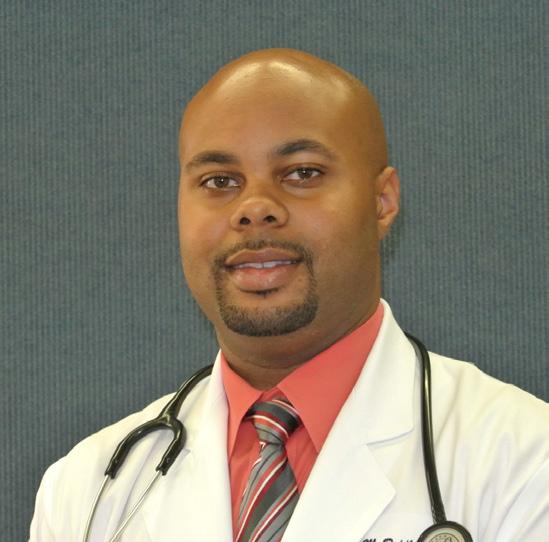
3 minute read
Graduate Medical Education
from NC AHEC 2018-19 Year in Review
by MAHEC
TRAIN Graduate Medical Education
SAM CYKERT Director of Graduate Medical Education sam_cykert@ncahec.net 919-843-4832
8 |10 | Residency teaching programs are central to the reason why the NC AHEC Program was established—to create an infrastructure to expand the number, diversity, and training of primary care physicians statewide.
Today, we support 19 community residency programs in family medicine, general surgery, psychiatry, internal medicine, pediatrics, and obstetrics and gynecology across all nine AHEC regions.
DID YOU KNOW?
Medical residencies can last three to seven years, depending on a physician’s chosen specialty. An NC AHEC residency is just the right size—large enough to feel like part of a team, but small enough to receive tailored one-on-one training. Appointed faculty continuously improve their training methods, including those at GREENSBORO AHEC, which expanded its faculty development offerings in 2019 to include interprofessional education, mindsets and well-being, and more.
Clinical rotations offer diverse learning experiences by facilitating opportunities to work with community preceptors, regional health departments, outreach clinics, and other community partnerships. In 2018, residents at SEAHEC participated in the inaugural Wilmington MedFest for Special Olympic athletes and provided physicals to over 100 special needs athletes from all five counties in the region.
Whether in a university or hospital-based program, NC AHEC residencies support continuity of practice by providing care to the same patients over the length of a program, especially in vulnerable populations. Residents and faculty at CHARLOTTE AHEC, for example, made over 55,000 outpatient visits to Medicaid, Medicare, and uninsured patients in 2018-19.
Teaching faculty design responsive curriculums that encourage residents to explore their interests in specialties while developing a firm foundation to provide excellent patient care, no matter the circumstances. To prepare its residents for different scenarios, MAHEC opened its Simulation Center in July 2018 to create hands-on experiences in providing care in health emergencies.
Learning to integrate the latest innovative technology is at the forefront of every AHEC resident’s experience. In 2019, SEAHEC hosted a program for NC AHEC residents on point-of-care ultrasound techniques that can lend clinicians a diagnostic edge and produce better medical outcomes.
DR. STERLING RIDDLEY is a 2019 graduate of the Southern Regional AHEC Family Medicine residency program in Fayetteville.
MEET AN AHEC RESIDENT
When considering where to pursue his residency, Dr. Sterling Riddley was drawn to practice medicine in his adopted hometown of Fayetteville, North Carolina, where he graduated from high school and has family connections. He felt that the reputation of SOUTHERN REGIONAL AHEC and the chance to return to familiar surroundings would help him develop as a well-rounded physician.
“I have always considered Fayetteville my home,” Dr. Riddley shared. “The opportunity to return there to complete my medical training and serve my community was ideal.” After graduating in June 2018, the boardcertified physician was accepted as Southern Regional’s first Diabetes Fellow. Dr. Riddley worked closely with diabetic patients in the Family Medicine Center on an interprofessional team to become an expert diabetologist. One year later, Dr. Riddley is now practicing medicine with the same faculty physicians who served as his mentors. “I learned key lessons during my time as a resident and fellow that taught me to look at the big picture when solving problems and treating patients,” he said.
Having found his niche teaching new residents, Dr. Riddley tells medical students pursuing family medicine that they should consider NC AHEC residencies. “This program prepares physicians for outpatient, inpatient, urgent care or academic work,” he said. “It’s a great place to train where the importance of being
a well-rounded family physician in multiple settings is stressed.”
Speaking of his own personal highlights during his residency, Dr. Riddley believes that the success of Southern Regional’s program is largely due to its supportive and encouraging atmosphere. “The diversity and stability found within this community are the main reasons why I would recommend this program.”
MAKING A DIFFERENCE
In 2017, 53% of physicians who participated in an AHEC residency between since 1997 were still practicing in North Carolina. This retention rate is higher than other non-AHEC residency programs in the state. The Family Medicine Residency program at MAHEC is particularly successful, retaining 74% of its graduates from 2008 to 2011 to support a high concentration of family physicians in Western NC.









